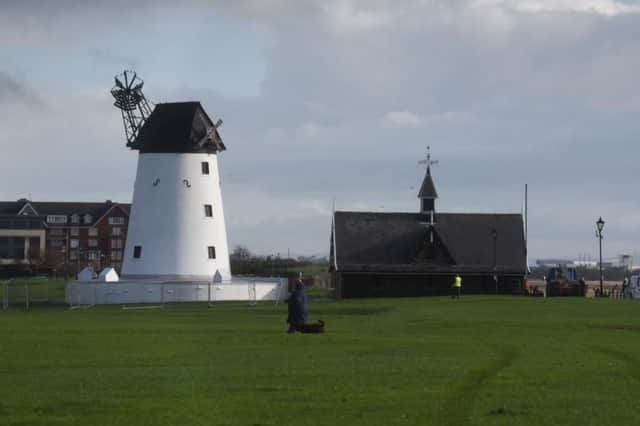Wild goose chase ends in fatality in latest suspected bird flu case in Lytham


The goose was found wandering around on East Beach, near Lytham windmill, late on November 16.
It was reported to be showing symptoms of bird flu, including confusion, loss of balance, and swollen, watery eyes.
Advertisement
Hide AdAdvertisement
Hide AdJustin Greenhalgh, of Brambles Wildlife Rescue, who was contacted about the bird, said: "It was reported to us by a member of the public who had found the goose in a distressed condition.
"They tried to coax the goose onto the green, and it turned several times, but it was disorientated and its eyes were streaming, which are both signs of bird flu.
"The people attempted a number of times to chase it back onto the green, but unfortunately it went onto the road and a car hit it and killed it outright."
The goose, which is believed to have come from the Ribble Estuary, was reported to Fylde Council and the Department for Environment, Food and Rural Affairs yesterday morning.
Advertisement
Hide AdAdvertisement
Hide AdIt is the tenth suspected avian flu-related death among the Fylde coast's wild bird population since outbreaks of the disease were reported in Britain earlier this month.
Five swans at Cypress Point in Lytham, two swans and one Canada goose at Stanley Park in Blackpool, and a cygnet on the pond behind the Four Seasons in Staining are already believed to have died of the deadly virus, which rarely affects humans.
A 'highly pathogenic strain' of bird flu was found at a poultry farm in Salwick, on the outskirts of Preston, on Sunday, November 14, and another outbreak was confirmed at a premises in Kirkham late on Tuesday.
READ: Bird flu outbreak confirmed in KirkhamA country-wide 'Avian Influenza Prevention Zone' has been put in place by DEFRA, meaning bird owners must fence off their free-ranging birds, separate ducks and geese from other poultry, and clean and disinfect footwear before and after tending to their birds.
Advertisement
Hide AdAdvertisement
Hide AdThey must also clean and disinfect all their vehicles to prevent spread between premises, minimise the movement to and from bird areas, and keep records of poultry, captive bird and egg movements.
Birds suspected to be suffering from bird flu should not be touched. If you suspect an outbreak of bird flu in your area, contact the DEFRA helpline on 03459 33 55 77.
Thanks for reading. If you value what we do and are able to support us, a digital subscription is just £1 for your first month. Try us today by clicking here.